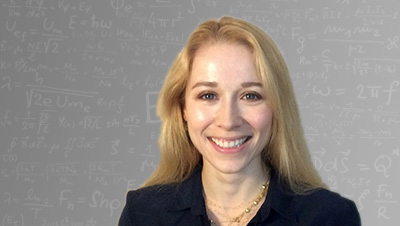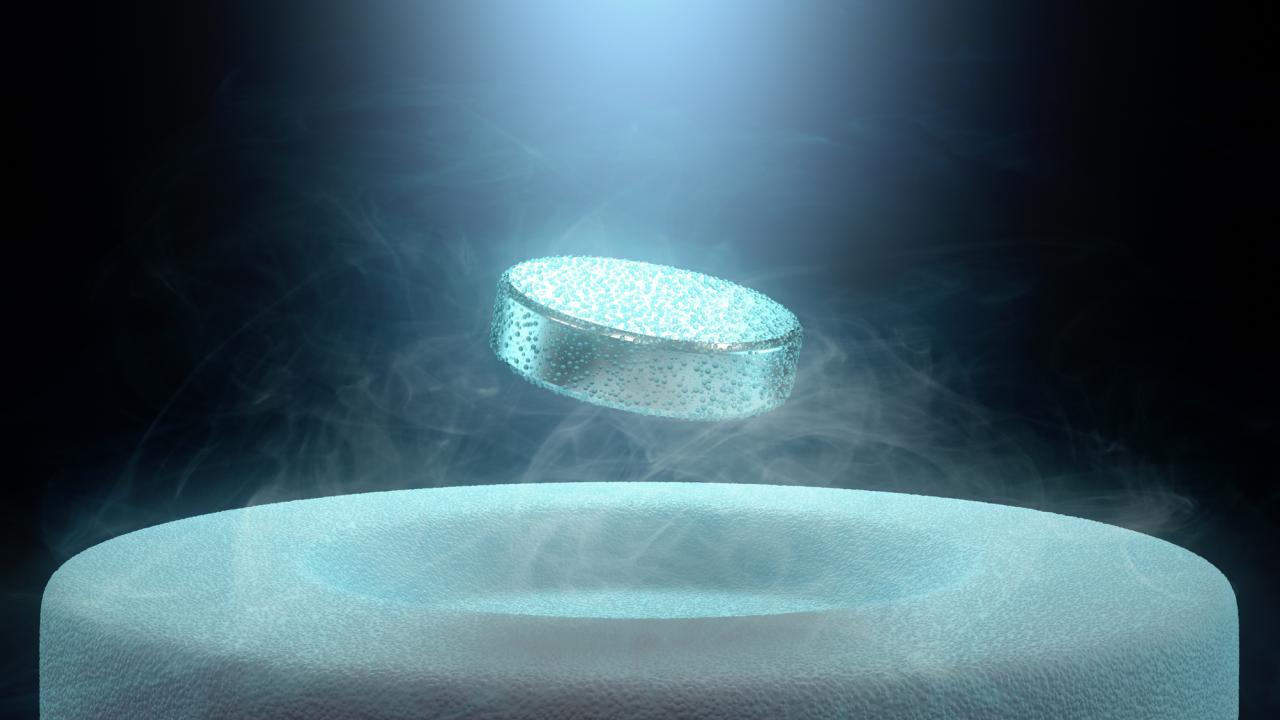UC Davis physicist Inna Vishik is among the third annual cohort of Experimental Physics Investigators supported by the Gordon and Betty Moore Foundation. Vishik, associate professor in the Department of Physics and Astronomy, joins 18 other researchers nationwide who will each receive a five-year, $1.25 million grant to pursue new research goals and explore uncharted, innovative ideas.
“I am astounded, deeply honored, and profoundly motivated by this incredible opportunity,” Vishik said. “The Gordon and Betty Moore Foundation has been known for supporting important physics research that has fallen through the cracks of existing funding programs. Similarly, the Experimental Physics Investigators program fills a new niche of focusing on the associate professor level, where specialized funding is needed but otherwise lacking.”

The grant will support Vishik’s research on superconductors, materials that conduct electricity with zero resistance. Vishik is specifically interested in cuprate superconductors, a family of materials fashioned from layers of copper and oxygen.
“For cost-effective applications of superconductors in the near-term, the cuprates are perhaps our best and only hope, but scientists still do not agree why they become superconducting in the first place,” said Vishik, who’s been fascinated by cuprates since her days as an undergraduate student at Stanford University. “My proposal aims to understand how electrons move in seldom-studied examples of these materials.”
Cuprate superconductivity
Though hundreds of cuprate superconductors have been discovered, only a few of those compounds and their compositions have been investigated in detail. This tunnel vision of the materials and parameter space limits our understanding of the mechanism enabling superconductivity in cuprates.
“What we know about cuprates is that their properties are tuned by varying the charge carrier density. My project will focus on the high-carrier density regime where superconducting transition usually diminishes,” Vishik said. “Little is known about this high-carrier density regime, and our research will fill that gap via several compounds through experimental and numerical approaches.”
Vishik and her colleagues will use angle-resolved photoemission spectroscopy, among other techniques, to reveal the electronic structure and molecular dynamics of cuprate superconductors.
“Understanding our highest temperature superconductors at ambient pressure — including their materials' diversity and entire composition range — can pave the way for designing new superconductors with even more favorable properties,” Vishik said.
Support for experimental physics
The Gordon and Betty Moore Foundation’s Experimental Physics Investigators initiative was founded in 2022 to support the next generation of scientific trailblazers who will usher in new insights and open new frontiers.
“In addition to the Gordon and Betty Moore Foundation making this incredible investment in experimental physics, this honor recognizes the investment that the university and college made in solid state science nearly a decade ago, across multiple departments, as well as the Dean's Faculty Fellowship, which allowed me to plant the seeds of this proposal two years ago,” Vishik said.
Vishik joined the Department of Physics and Astronomy at UC Davis as an assistant professor in 2016. Distinguished Professor Richard Scalettar, chair of the department, said Vishik has made an exceptional impact on the college, from performing high quality research and providing mentorship to students to organizing lecture series featuring early career speakers from underrepresented groups.
“Professor Vishik's work on cuprate superconductors, the topic of this particular grant, has been the foundation to her moving into other forefront areas of solid-state physics, including materials with massless electrons and unusual forms of interplay between magnetism and superconductivity,” Scalettar said. “The systems she studies have the potential for important technological impact.”
“Such substantial financial support from the Gordon and Betty Moore Foundation emphasizes the importance of Professor Vishik’s research,” said Estella Atekwana, dean of the College of Letters and Science at UC Davis. “We’re incredibly proud of her and grateful for her innovative research in an area that’s poised to change our understanding of superconducting materials. I’d also like to thank the Gordon and Betty Moore Foundation for their generous support of our faculty.”
Media Resources
Inna Vishik on the Hype and Reality of Superconductivity
The Gordon and Betty Moore Foundation advances scientific discovery, environmental conservation, and preservation of the special character of the San Francisco Bay Area. Visit Moore.org or follow @MooreFound.
